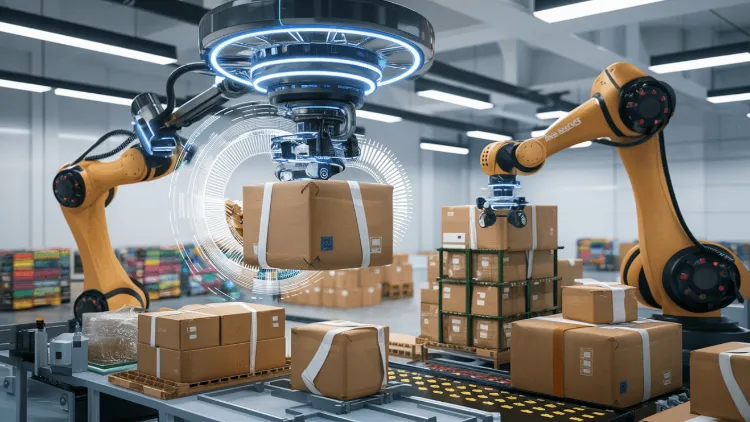
In a groundbreaking move to enhance customer experience and reduce environmental impact, Amazon has launched Project PI, an AI-driven system that detects product defects before they are shipped to customers. By leveraging a combination of generative AI and computer vision technologies, Project PI aims to minimize the number of damaged or incorrect items reaching consumers' doorsteps.
The innovative system, dubbed “Private Investigator,” scans products as they pass through imaging tunnels in Amazon's fulfillment centers. Advanced algorithms analyze the images to identify issues such as damaged packaging, incorrect colors or sizes, and expired items. When a defect is detected, the system isolates the product, preventing it from being shipped to the customer.
Dharmesh Mehta, Vice President of Worldwide Selling Partner Services at Amazon, emphasized the importance of delivering an excellent shopping experience for customers.
By leveraging AI and product imaging within our operations facilities, we are able to efficiently detect potentially damaged products and address more of those issues before they ever reach a customer, which is a win for the customer, our selling partners, and the environment
Mehta stated.
Project PI employs various methods for defect detection, including optical character recognition (OCR) models that check product expiration dates and computer vision models trained on reference images from Amazon's product catalogs. These models analyze color accuracy and identify visible physical damage, such as bent book covers or torn packaging.
The implementation of Project PI not only enhances the customer experience but also supports Amazon's sustainability efforts. By reducing the number of product returns, the system contributes to decreased carbon emissions and minimizes wasted packaging. Kara Hurst, Vice President of Worldwide Sustainability at Amazon, highlighted the importance of this initiative: “AI is helping Amazon ensure that we're not just delighting customers with high-quality items, but we're extending that customer obsession to our sustainability work by preventing less-than-perfect items from leaving our facilities, and helping us avoid unnecessary carbon emissions due to transportation, packaging, and other steps in the returns process.“
Currently operational in several Amazon fulfillment centers across North America, Project PI scans millions of products daily as they pass through the imaging tunnels. When a defective item is identified, Amazon's teams assess the product to determine its true status and decide on appropriate actions, such as discounting it for resale on the Second Chance platform, donating it, or finding an alternative use.

In addition to preventing the shipment of defective products, Project PI aids Amazon in investigating the root cause of negative customer experiences. When a product is returned, Amazon utilizes a Multi-Modal Large Language Model (LLM) system to analyze customer feedback and images from Project PI and fulfillment centers to pinpoint the issue. This process allows Project PI to learn from its errors and enables Amazon's selling partners to access data on defective products, helping prevent future occurrences.
As part of its commitment to continuous improvement in operations and sustainability, Amazon plans to expand Project PI to additional fulfillment centers throughout the year. This initiative is one of many AI-driven tools Amazon has adopted to promote sustainability, alongside models that minimize packaging use, monitor product quality in its grocery service, and estimate each product's carbon footprint.
The launch of Project PI showcases Amazon's dedication to leveraging cutting-edge technologies to enhance customer satisfaction while simultaneously addressing environmental concerns. By harnessing the power of Generative AI and computer vision, Amazon is setting a new standard for e-commerce giants in terms of product quality assurance and sustainable practices.
As online shopping continues to dominate the retail landscape, initiatives like Project PI will become increasingly crucial in maintaining customer trust and loyalty. Amazon's proactive approach to identifying and preventing the shipment of defective products serves as a model for other e-commerce companies to follow, emphasizing the importance of investing in AI-driven solutions to optimize operations and minimize environmental impact.
With the successful implementation of Project PI, Amazon is poised to further solidify its position as a leader in both customer service and sustainability. As the company continues to innovate and refine its AI-powered systems, customers can expect an even more seamless and satisfying online shopping experience, knowing that their purchases have undergone rigorous quality checks before arriving at their doorstep.







